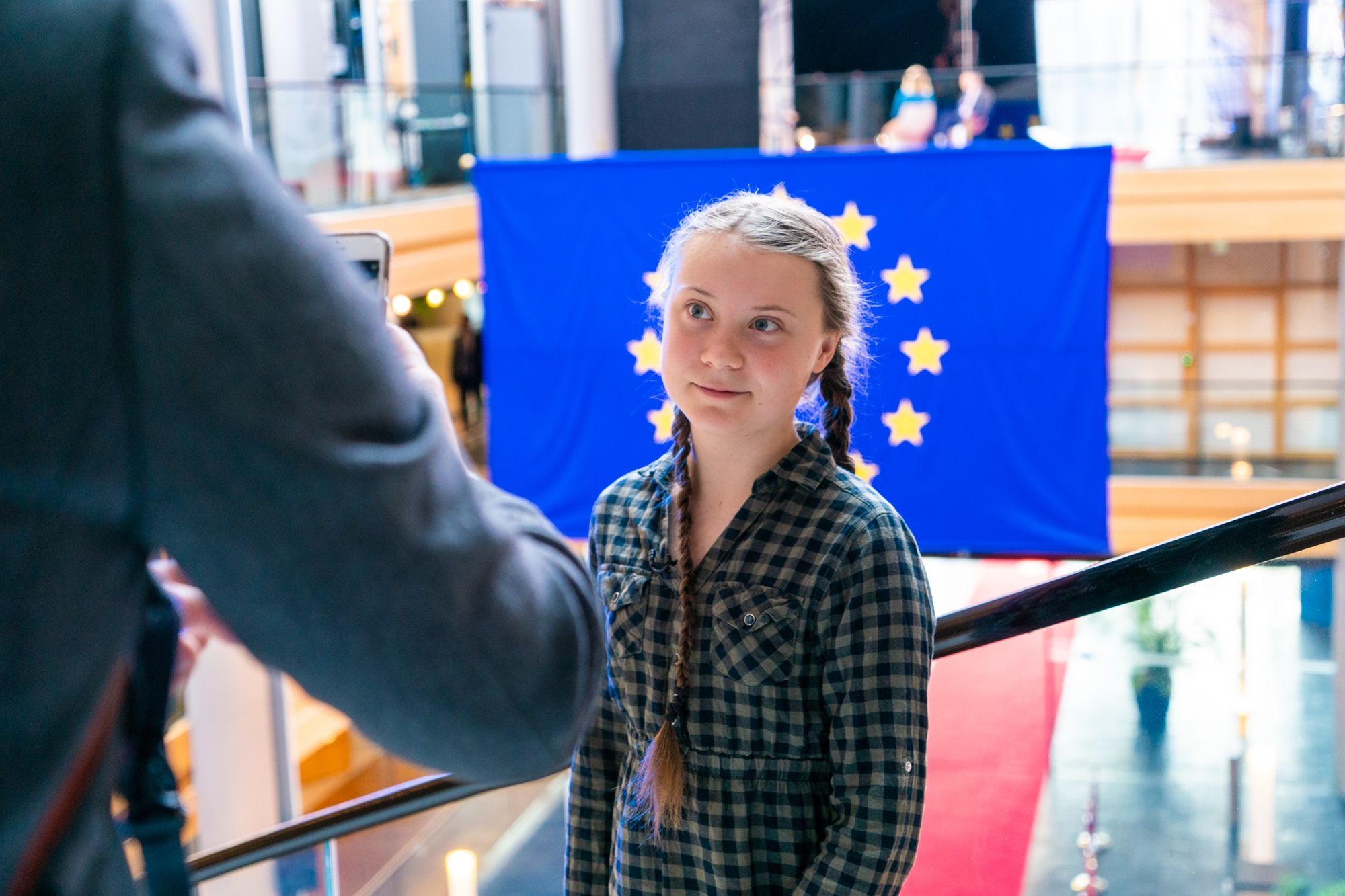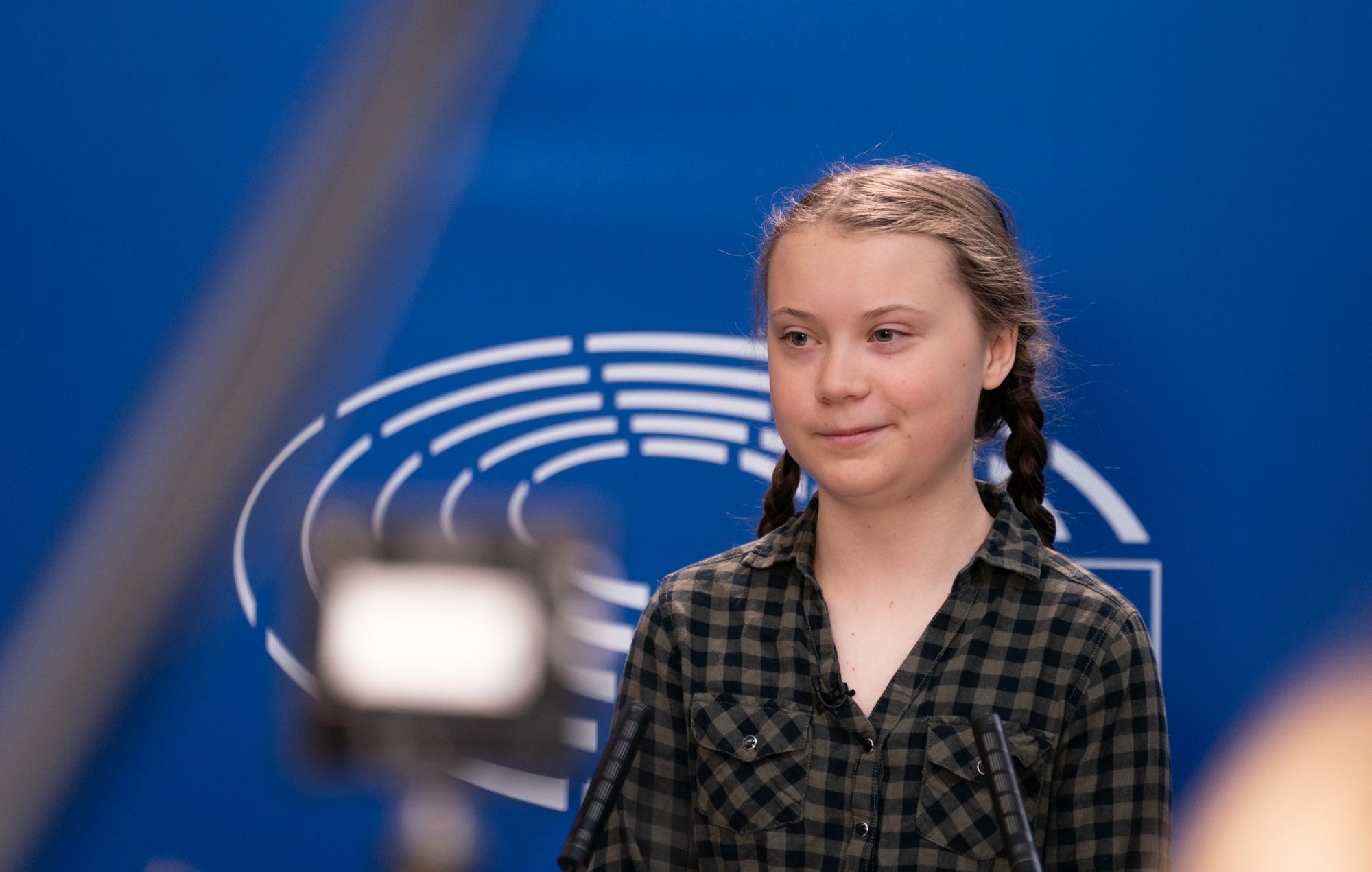By Jack Charters, Deputy Features Editor
With thousands expected to descend upon College Green today, Friday 28 February, to join Greta Thunberg for the Bristol Youth Strike 4 Climate march and school strike, it is easy to overlook the journey of Greta Thunberg and her School Strikes for Climate movement from a local phenomenon to a global initiative.
This expansion of the protests worldwide by Greta, who is considered the de facto vanguard of the global environmental movement, is expected to draw unprecedented numbers of people to Bristol. But just who is Greta Thunberg, whose astronomical rise from exacerbated schoolgirl in 2018 to international environmental figurehead and TIME Person of the Year in 2019 has drawn both reverence from supporters and revile from detractors?

On the 20 August 2018, alone and armed with just a banner reading ‘skolstrejk för klimatet’ (school strike for climate), the then 15 year old schoolgirl sat outside the Swedish parliament for roughly six hours, emulating a similar school strike in Florida weeks earlier. However Thunberg had unexpectedly started the ball rolling for the exponential growth of the climate movement, to the point where the Avon and Somerset Police have expressed concerns for the ‘potential for trips, slips, falls and crushing’ at today’s rally.
Thunberg’s continued striking as part of her FridaysForFuture programme acted as inspiration for students to launch student strikes. In November 2018 Australian students defied PM Scott Morrisons calls for ‘less activism’ and began to strike. A further 45,000 students protested in Germany and Switzerland in January 2019. In February 2019 15,000 students in 60 UK towns held strikes from school.

As months went on, strikes became less sporadic and isolated, and more unified, with approximately a million students striking in over 100 cities globally in March 2019. This eventually culminated in an estimated 2 million students striking globally on the eve of the United Nations Climate Change Conference in November 2019, and as today’s rally proves; mass school striking is just as prevalent now and it is not going anywhere soon.
Throughout the protests Thunberg has been a fundamental source of inspiration for students. Yet with the global student population picking up the slack as part of the so-called ‘Greta effect’, her recent endeavours to raise awareness have targeted a much wider audience. In September 2019 she sailed to the UN Climate Summit in New York to symbolically draw attention for both the need for sustainable travel and the plight of the climate. At that same conference, she gave her infamous tearful speech to world leaders, condemning them for chasing ‘money and fairy tales of eternal economic growth’.
Today’s rally proves that mass school striking is just as prevalent now and it is not going anywhere soon.
Such a position of societal notoriety has also meant she has borne the brunt of targeted hate and abuse from the ever-growing environmental counter-protest movement, with them denouncing her as an alarmist, a puppet of her parents, and a paid actor, amongst other slurs. Significant public figures have also joined this cacophony of verbal abuse. Upon Thunberg’s naming as TIME Person of the Year in December 2019, Donald Trump launched a characteristically unveiled twitter attack at the then 16 year old, saying that ‘Greta must work on her Anger Management problem’. He followed it up patronisingly with ‘Chill Greta, Chill!’.
So ridiculous. Greta must work on her Anger Management problem, then go to a good old fashioned movie with a friend! Chill Greta, Chill! https://t.co/M8ZtS8okzE
— Donald J. Trump (@realDonaldTrump) December 12, 2019
Fox News presenter Laura Ingraham drew parallels between young climate activists and Stephen King’s Children of the Corn. Michael Knowles, a US right-wing commentator, described her as a ‘mentally ill Swedish child’ as a guest on the same show. However Greta feels more strongly about the disingenuous promises and platitudes of politicians. She feels that the school strikes have ‘achieved nothing’, because world leaders are ‘behaving like children’.
Thunberg has been candid about her diagnoses of obsessive-compulsive disorder, Asperger syndrome and her struggles with depression. She describes her Asperger’s as a ‘superpower’ that allows her to focus on the issue of climate change, and with the climate becoming ever more unpredictable it is certainly a superhero that the climate movement needs.
Featured Image: Flickr/Anthony Quintano
Are you attending the climate strike today? Send us your photos!









